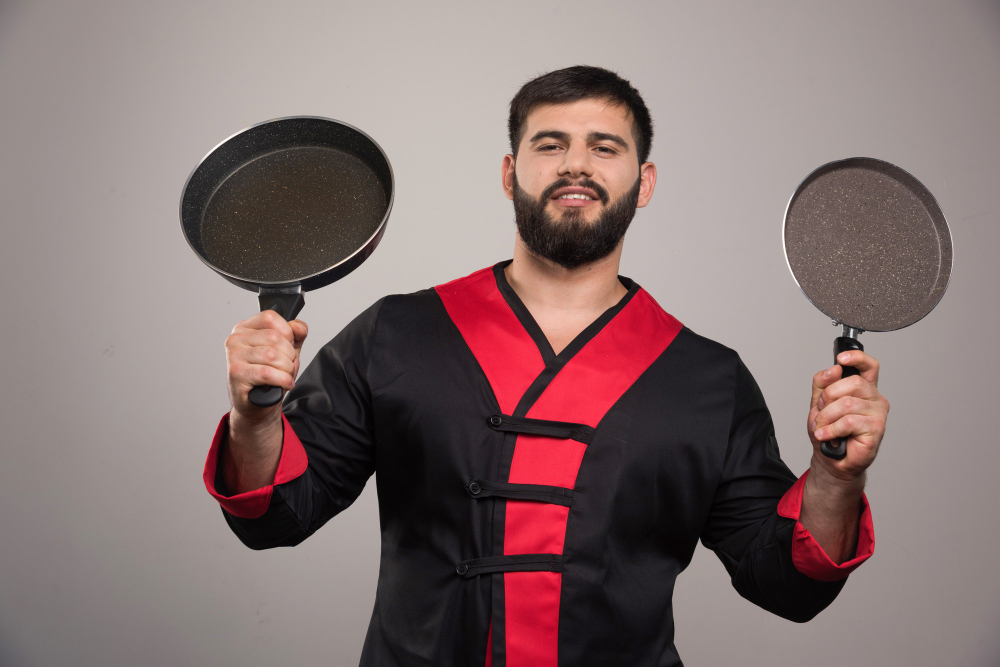Rebecca Wilcox: A Profile of a Versatile Broadcaster

When you hear the name Rebecca Wilcox in the media world, what comes to mind is someone with poise, integrity, and an ability to connect with people. Over the years, she has carved out a space for herself in British television — not just as a presenter, but as a voice for consumer issues, real-life stories, and public causes. Let’s take a deeper look into her story, her journey, and what makes her stand out in a competitive industry.
Early Life & Background
Rebecca Wilcox was born on 10 January 1980 in England. Wikipedia She is the middle child of three, born to two well-known figures in the British media: her mother Esther Rantzen, a veteran broadcaster and social campaigner, and her father Desmond Wilcox, a documentary maker and television producer. Wikipedia Growing up with parents active in journalism and broadcasting would naturally shape Rebecca’s worldview and ambitions.
She has an older sister, Emily, and a younger brother, Josh. Wikipedia For her education, Rebecca attended Queen’s College in London, before proceeding to Somerville College, Oxford, where she earned a degree in English Language and Literature. Wikipedia
That classical grounding in literature and language would later help her in storytelling, communication, and investigative reporting, giving her an edge in understanding narratives and people.
Beginning in Media: From Behind the Scenes to On Camera
Like many broadcasters, Rebecca’s start was not in front of the camera. She began her career working as a television researcher and assistant producer. Wikipedia+1 She worked on shows including Hell’s Kitchen at ITV, Cops with Cameras, and Trust Me – I’m a Holiday Rep for Channel Five. Wikipedia
Her first visible role in front of the camera came via BBC Three, where she appeared in the six-part series Conning the Conmen. Wikipedia She soon was involved in other BBC and Channel 4 work as well. For example, she co-presented My Life as an Animal (with Terry Nutkins) for BBC Three, and also presented a documentary on emissions called Mischief: Britain’s Embarrassing Emissions. WikipediaAnother notable early highlight was her documentary Lewis Hamilton: Billion Dollar Man, chronicling the life of the F1 driver, which aired on BBC Three and subsequently BBC One. Wikipedia Through these engagements, Rebecca began shaping her identity not just as a TV face, but as someone capable of exploring real-world issues, personalities, and social dynamics.
Established Roles & Signature Work
Over time, Rebecca Wilcox settled into roles that emphasized consumer advocacy, investigative journalism, and public interest issues. She is known for being a presenter on BBC’s Watchdog and Your Money, Their Tricks — programs that examine consumer rights, scams, unfair practices, and helping ordinary people protect themselves. Wikipedia+1
Her approach is not flashy — she doesn’t usually court celebrity or glitz. Rather, she brings a grounded, relatable presence, asking hard questions, digging for truths, and giving a platform to people who may feel powerless. That quality has earned her respect among viewers who trust her to tackle issues that affect their daily lives.
Rebecca also ventures into other TV formats and appearances. According to IMDb, she has credits in shows like Celebrity Antiques Road Trip. IMDb
In short, her broadcasting niche lies at the intersection of journalism, public service, and storytelling — which has allowed her to build a long-term, credible presence in the British media landscape.
Personal Life & Balance
Behind the screen, Rebecca Wilcox also leads a life with personal commitments, family, and challenges.
In September 2009, she married auditor James “Jim” Moss. Wikipedia The couple live in London and have two sons. Wikipedia+1 Balancing motherhood, family life, and a media career is by no means easy — but Rebecca has embraced that dual role.
Though she has a well-known mother (Esther Rantzen), Rebecca has often spoken about stepping out of that shadow and constructing her own voice. In interviews, she acknowledges that having a celebrated parent is both a privilege and a pressure. The name recognition helps open doors; the comparisons can sharpen scrutiny. Yet she has persisted in forging her own path.
One recent and highly visible aspect of her personal-public life involves her mother’s declining health and the sensitive topic of assisted dying. Her mother, Dame Esther Rantzen, was diagnosed with terminal lung cancer, and Rebecca has publicly supported her mother’s right to make decisions about end-of-life care — including exploring assisted dying in Switzerland.
Rebecca has pointed out the heartache and moral challenge in potentially not being able to accompany her mother during that process, due to legal restrictions. She’s raised the emotional burden: how do you support someone you love, when the law may prevent you from being physically with them in their final moments?
This personal dimension has brought attention to Rebecca not just as a presenter, but as someone grappling with intense emotional and ethical dilemmas in the public eye.
Advocacy & Public Voice
Because of her family background and media work, Rebecca Wilcox occupies a space where broadcasting meets activism.
Her mother’s founding of Childline (a counseling and support service for children and young people) is a cause close to Rebecca’s heart. As Dame Esther’s health has declined, Rebecca has expressed her intention to help continue that legacy — taking over, in time, as President of Childline.
Moreover, Rebecca has not shied away from controversial or difficult topics. Her public stance on assisted dying, for instance, is not simply a personal matter — she has used her voice to raise wider questions about dignity, choice, compassion, and law. Her willingness to take that on gives her a role that goes beyond television: she becomes a kind of moral voice, bridging media, personal struggle, and public debate.
She also continues to appear regularly on consumer journalism programming, where she helps ordinary people understand their rights, challenges them to hold institutions accountable, and uses media as a tool for empowerment.
Challenges, Critiques & Growth
No public figure escapes criticism or obstacles. Here are a few challenges Rebecca has likely faced (based on what can be discerned publicly) — and how she appears to deal with them.
- Stepping out from a famous parent’s shadow
Being Esther Rantzen’s daughter brings both attention and expectations. Some may assume her opportunities were solely due to her lineage. Rebecca has addressed this in interviews, emphasizing the pressure to prove her own merit and identity, rather than to ride on her mother’s name. - Navigating ethics vs. public scrutiny
Taking strong public positions (e.g. on assisted dying) invites critics, opponents, and intense media scrutiny. That requires resilience, willingness to have difficult conversations, and capacity to stay grounded in both personal belief and public responsibility. - Work-life balance in a demanding profession
Television schedules, investigative work, reporting deadlines, and public pressure can clash with family time, motherhood, privacy, and emotional wellbeing. Like many working parents, she must balance ambition and care. - Evolving media landscape
In a changing world of digital platforms, social media, streaming, and fragmenting audiences, broadcasters like Rebecca must adapt. Staying relevant means embracing new formats, maintaining authenticity, and being open to innovation.
But she seems to grow with each challenge, using them as opportunities to refine her voice, take on more mature roles, and deepen her impact.
Why Rebecca Wilcox Matters
You might ask: in a sea of media personalities and presenters, what makes Rebecca Wilcox stand out? Here are a few reasons:
- Credibility & integrity: Her work in consumer journalism, asking hard questions, defending ordinary people, gives her a respectable reputation.
- Authentic voice: She doesn’t project a glamorous persona; she connects through empathy, fairness, and measured questioning.
- Bridging personal and public: Her involvement with her mother’s struggles, her public stand on difficult moral issues like assisted dying, her willingness to be vulnerable — these give her a deeper resonance with audiences.
- Legacy continuity: Because of her family background (especially with Childline and her mother’s activism), Rebecca is well positioned to carry forward causes she believes in, blending broadcasting with social engagement.
- Adaptability: She hasn’t limited herself to one genre; she has moved from documentaries to consumer shows to investigative formats — showing flexibility and ambition.
Looking Ahead: What’s Next?
While Rebecca Wilcox has already built a strong career, several possible paths lie ahead:
- Further leadership in charitable work: When her mother’s health no longer allows, Rebecca may fully assume roles in Childline, continuing its mission.
- More hard-hitting documentaries or series: Her blend of clinical insight, empathy, and journalistic rigor makes her well suited to lead programs that dig into social issues — mental health, public policy, aging, ethics.
- Expanded digital presence: She may further engage through podcasts, online investigative platforms, or social media — giving her voice new reach beyond television.
- Advocacy & public policy engagement: As she has done with assisted dying, Rebecca may increasingly influence debates, legislation, or public awareness in areas she cares about.
- Mentorship & cultivating a new generation: Given her experience and background, she might mentor upcoming broadcasters, especially women, helping diversify voices in media.
Final Thoughts & Reflections
Rebecca Wilcox exemplifies how a modern broadcaster can be more than a face on screen. She is a storyteller, an advocate, a daughter balancing personal challenges, and a bridge between media and public conscience. Her journey is one of persistence, integrity, and growth.
In a world of sensationalism and superficial personalities, Rebecca stands out by being grounded, curious, and respectful of people’s lived realities. She reminds us that media work can matter — that telling the truth, illuminating injustice, and giving voice to the unheard are roles worth pursuing.



















